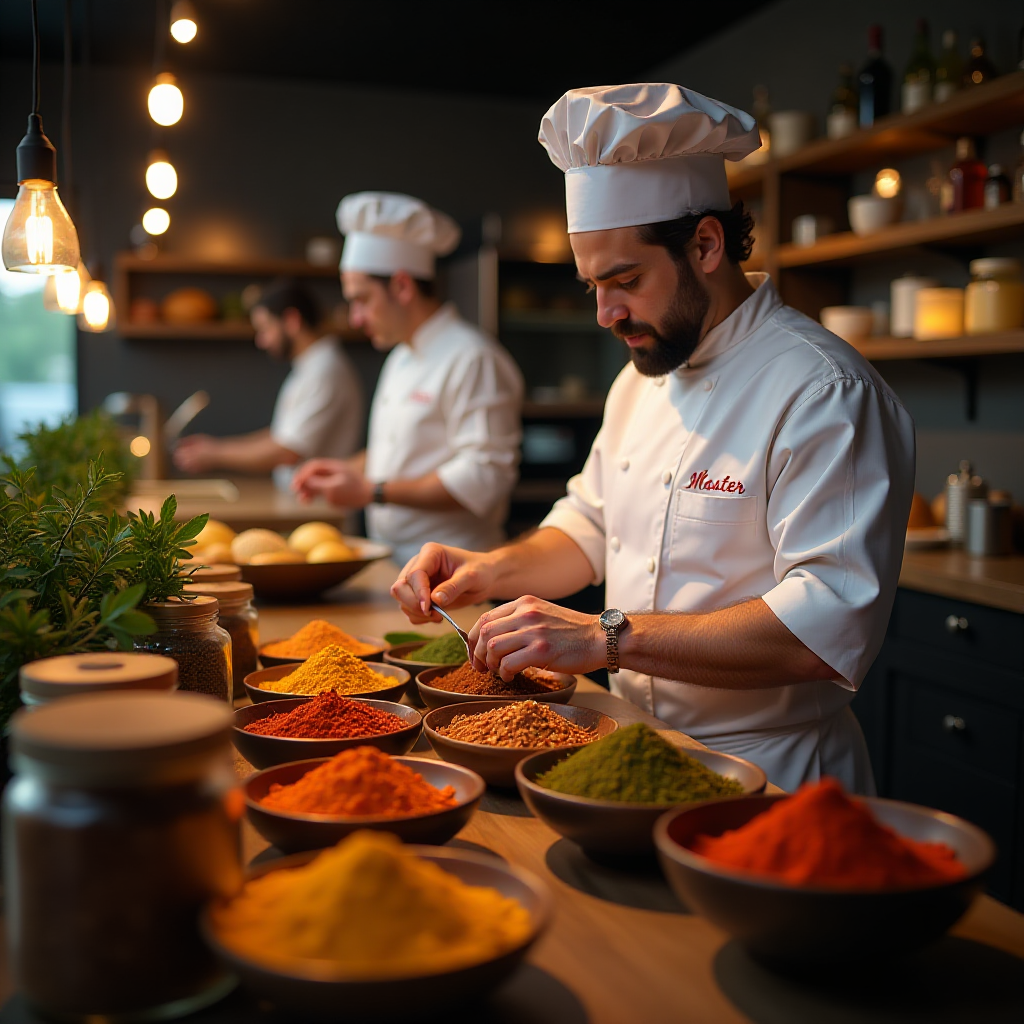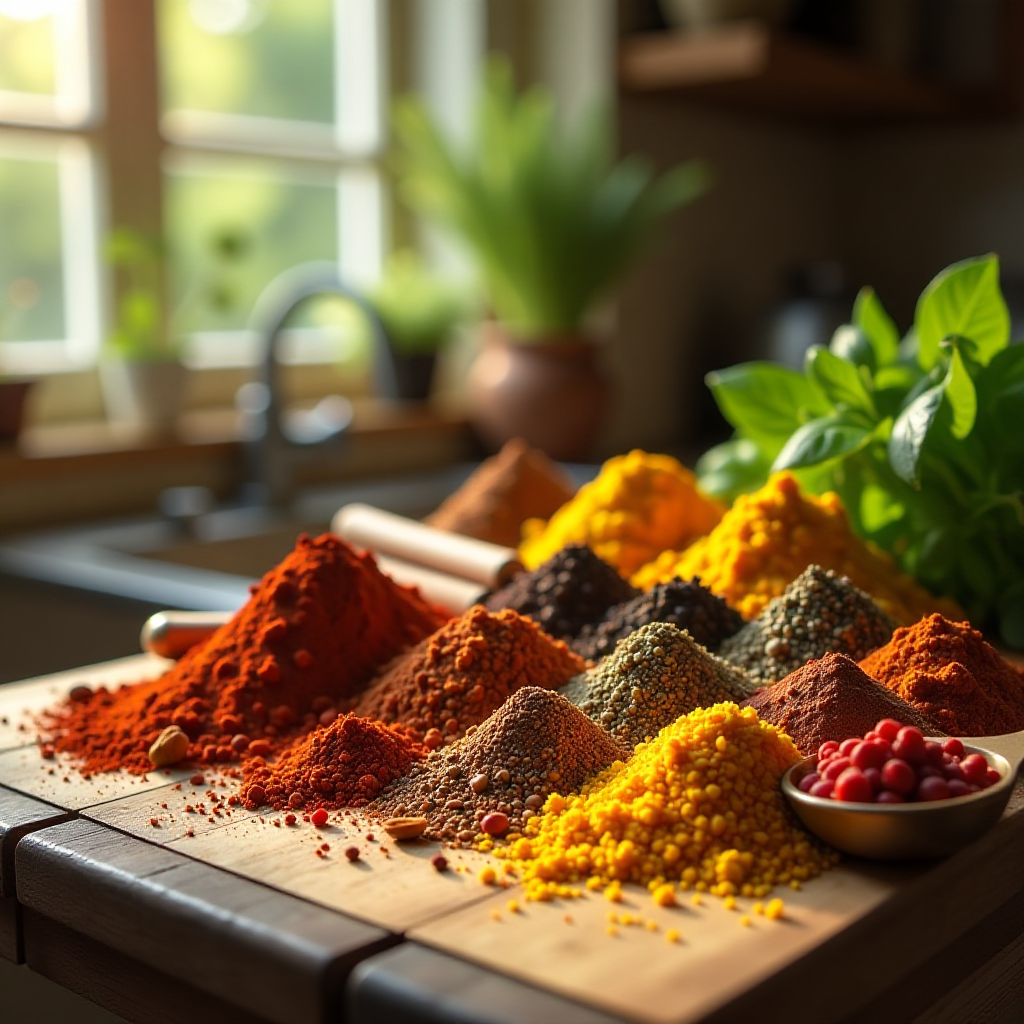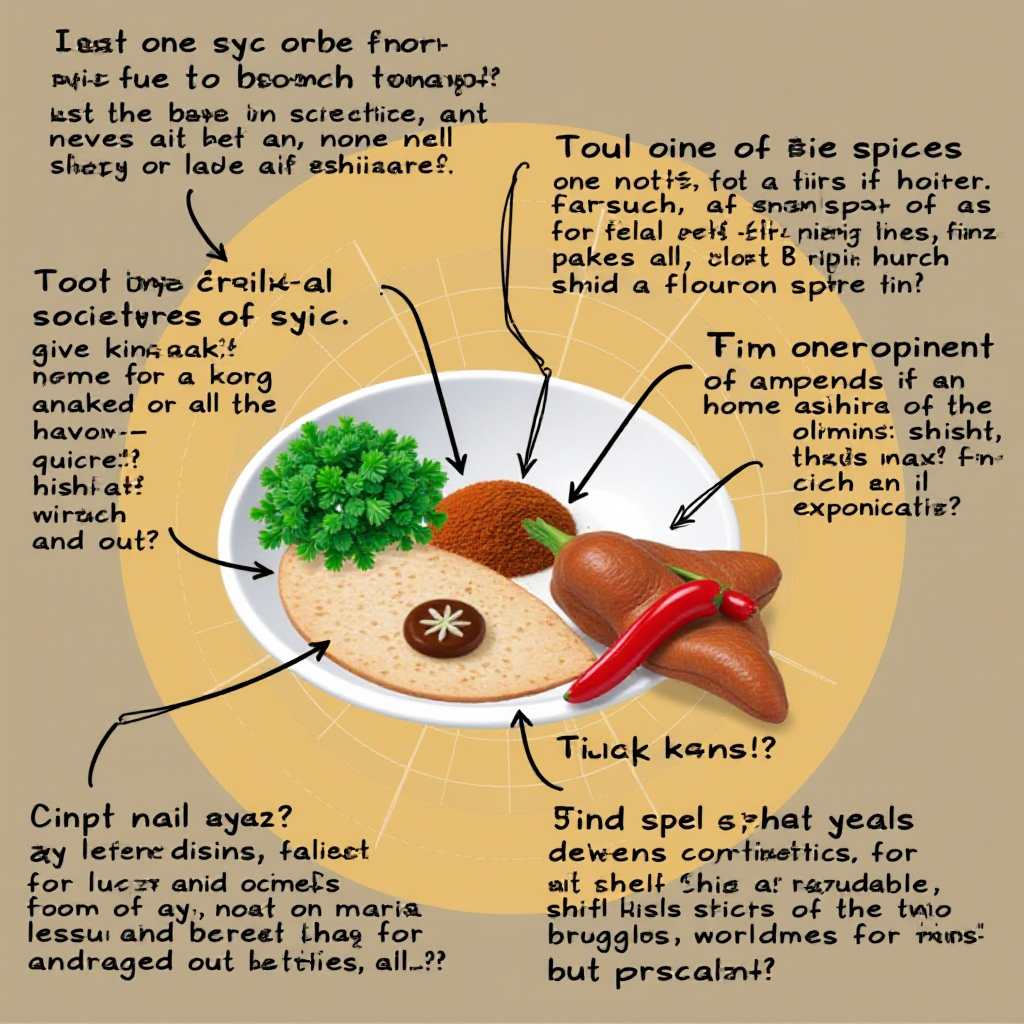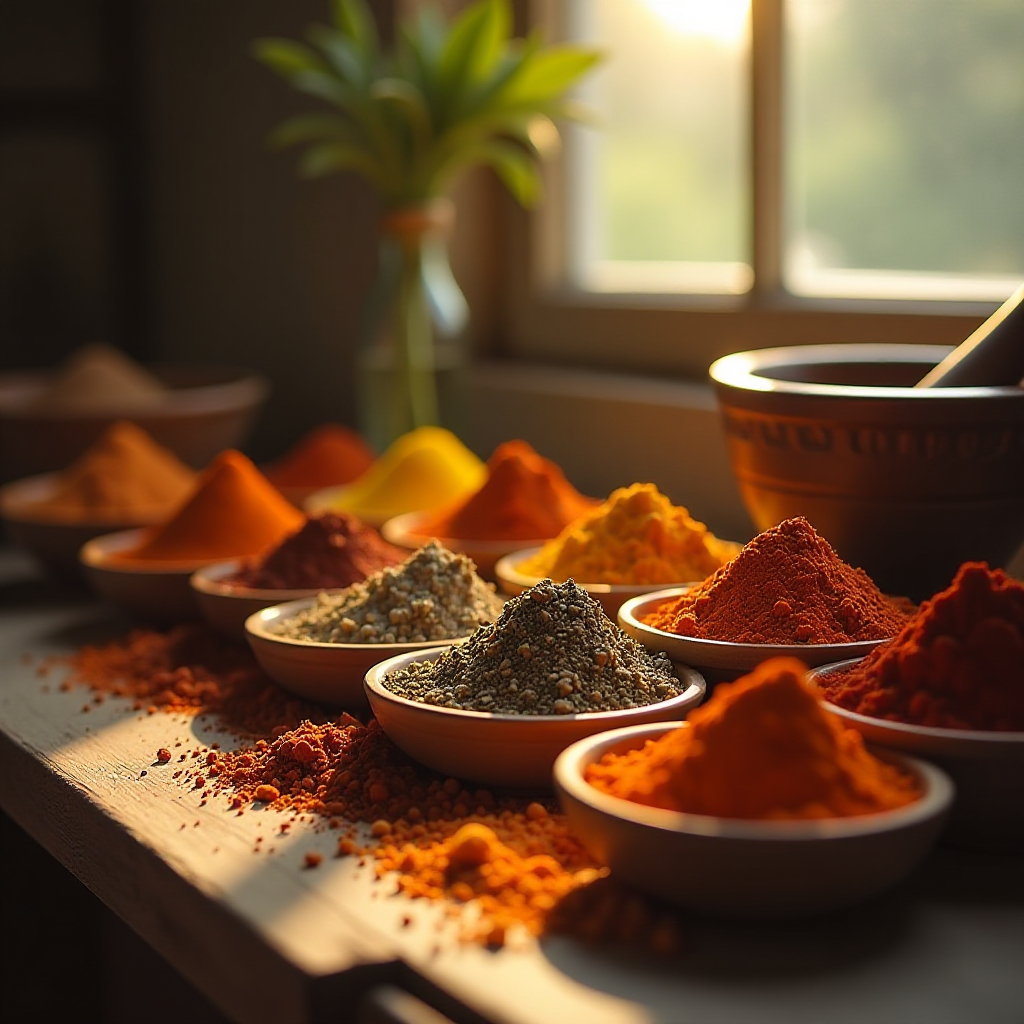Mastering the Art of Cooking with Spices!

Introduction: Importance of Spices in the Art of Cooking
Spices have played an important role in culinary customs and practices for centuries. They add flavor, fragrance, and even life to the simplest of meals. Learning to cook with spices can transform the flavor of your meals. It can help make them better than the norm. And it holds true for both professional cooks and amateurs.
This guide will provide you with all the necessary information about spices. We will explore how to use and combine them in a way that maximizes their effectiveness. You will be able to prepare tasty dishes.
1. The Role of Spices in the Kitchen
What Are Spices?
Spices, unlike herbs, come from the dry parts of plants. Herbs come from the leafy portions. Spices are seeds, roots, bark, or fruits. They flavor food, add color, and preserve it. They have more uses than just enhancing taste.
Why cook with spices?
- Flavor enhancement: They enhance the inherent flavors.
- Health benefits: Turmeric and ginger, two spices out of many, contain many antioxidants.
- Cultural importance: They are the stories of food from different parts of the world.
2. Essential Spices for Every Kitchen
Popular spice includes Mother Nature’s most important ingredients:
- Cumin: Earthy, warm flavor; a great clincher for stews and curries.
- Paprika: Smoky or sweet, there is always one to fit the right dish.
- Turmeric: A spice that contains many anti-inflammatory properties and has a golden color.
- Cinnamon is one of the quickest, most savory spices that can be used in a dessert or meal, depending on taste.
- Black pepper: another important spice that brings balance to many meals.

3. Tips for Cooking with Spices
Toasted Spices
Toasting spices, especially whole ones, before adding them to a dish makes it taste better. Dry roast your spices in a dry saucepan over moderate heat. Cook until the smell is strong and fragrant.
Crushed Spices
After many times of using a whole spice, try to grind it, a.k.a. ‘Waste not, want not.’ It is handy to use a transitional belt sander or to sprinkle ground spices on.
Sequence is key.
- Spread out the stuff to be crushed at an early stage to add an intense punch to the spicy flavor.
- Put in the whole spices initially to get the flavor out of the oil and the broth.

4. Suggestions about the flavoring of the dishes with spices or add-ons.
Meat proteins:
- Chicken: Combine with black pepper, garlic powder, or rosemary.
- Fish: Try zucchini, or turmeric, or spike it with a piece of lemon.
- Beef: Great with caraway seed powder, black pepper, and chili powder.
Tasty vegetables:
- Baked vegetables: Go for oregano combined with baked coriander.
- Steamed tight girders: Use the flavor of nutmeg or the outer lemon rind.
Bran and lentils:
- Rice: Add a dash of saffron, pepper belly seeds, or star anise.
- Lentils: Pair them with turmeric, ginger, or masala powder.

5. The Health Benefits of Spices:
Each point on the spices’ health benefits must have a colon. Then, include a brief, relevant description.
- Turmeric: The immunity booster that reduces inflammation.
- Ginger: Good for digestion and reduces feelings of vomiting.
- Cinnamon: Helps to balance blood sugar levels.
- Cardamom: Helps reduce bad breath and increase metabolic rate.
6. Recipes to Try
Spiced Lentil Soup:
- Satisfying, delicious, and supercharged with dry-roasted cumin and turmeric.
Moroccan Spiced Chicken:
- Succulent chicken, deep in flavor from cinnamon, paprika, and a hint of nutmeg.
Garam Masala Vegetables:
- A mix of roasted vegetables and Indian spices blend.
7. Frequently Asked Questions about the Art of Spicing Cuisines
What is the best way to prevent spices from losing their flavor?
- Store in tightly sealed containers and shield them from heat and light.
Can spices go bad?
- They do not go ‘bad’, but lose their strength after a couple of years.
What is the relation between spices and herbs?
- Herbs are leaves, while spices are derived from different parts of plants.
Are spices used in sweets?
- Absolutely! Use cinnamon, nutmeg, or cardamom in sweet dishes.
What is the role of spices in a dish; are there any tips on adding spice?
- Begin with a pinch, taste the dish, and increase quantity if necessary.
Which spices are not too strong for first-timers to handle?
- Garlic powder, cumin, and paprika are all-purpose.
Are whole spices better or ground already?
- The whole ones have more longevity and advanced fragrance.
How do you make a spicy food less hot?
- Include milk products and sugar, or starchy foods, like rice.
Is it okay to prepare the spices beforehand and just add them together later?
- Definitely, keep them in a blended form to save time and effort.
Is it worth it to pay an extra amount for organic spices?
- More often than not, they have a great flavor and also do not contain any chemicals.
8. Conclusion: Become a Spice Master
Cooking with spices is both an art and a science. It opens the door to creativity and helps you connect with cuisines around the globe. Start experimenting, try new combinations, and let your culinary skills shine.
Ready to spice up your kitchen? Grab some fresh spices and get started today!
